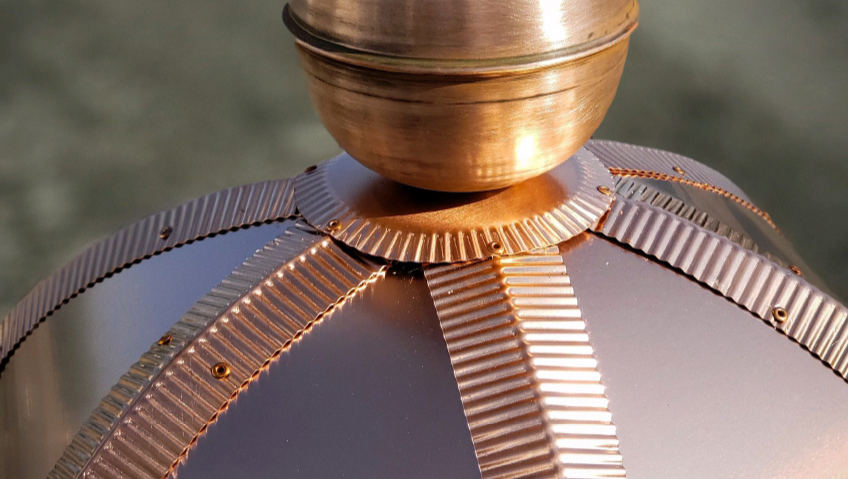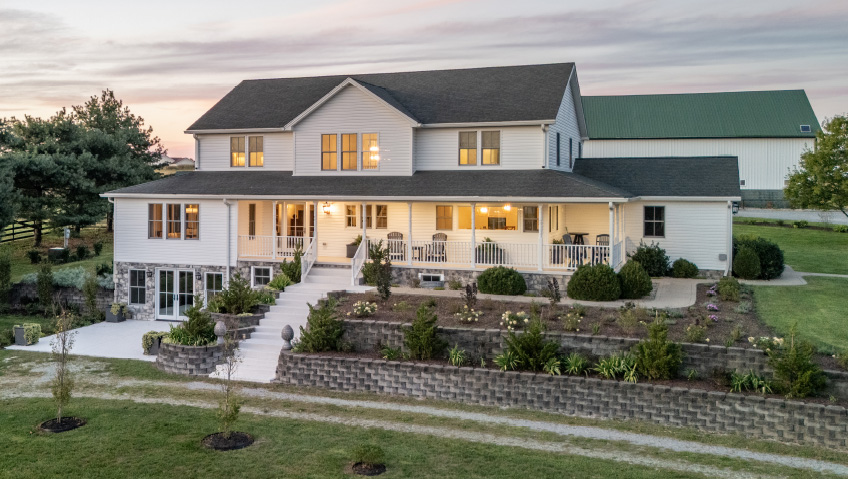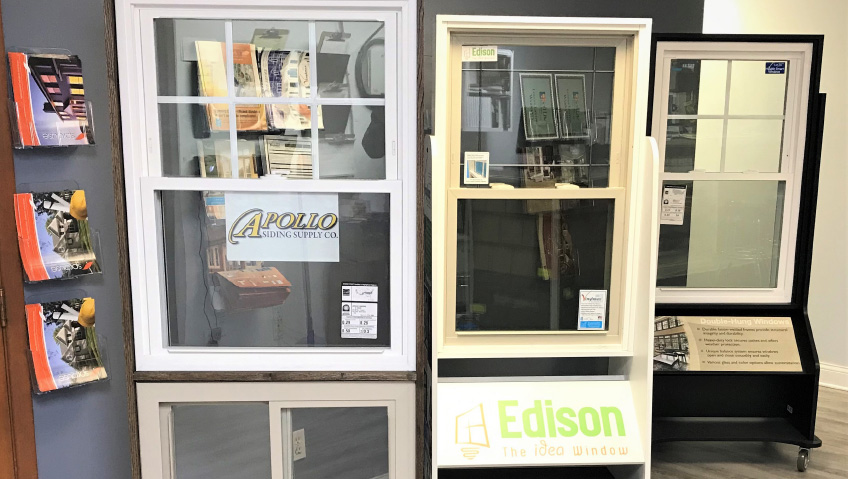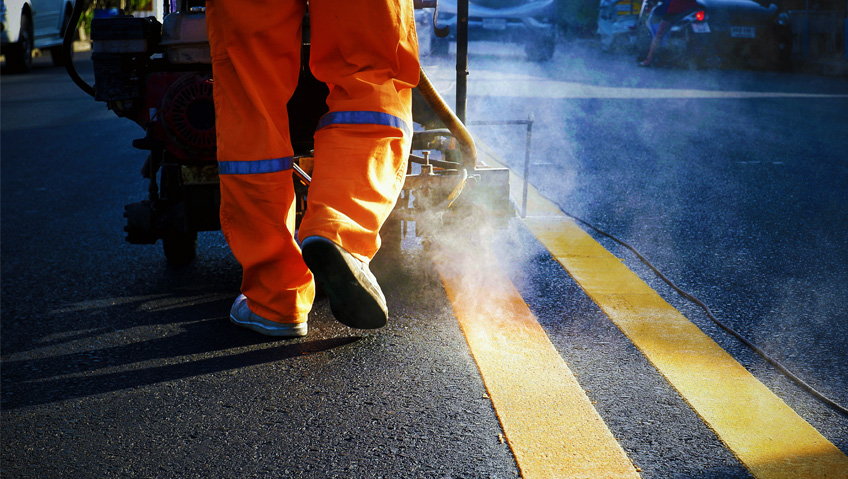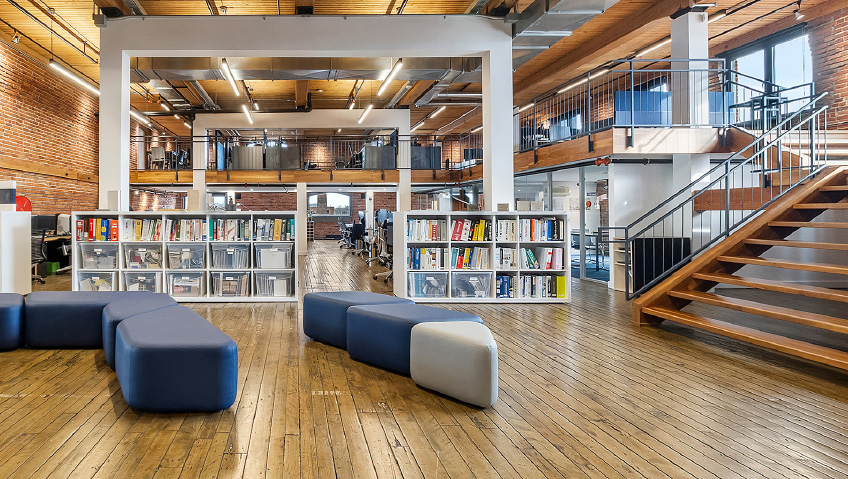Metal wall panels are visually appealing, durable, quickly installed compared to materials like brick, require little maintenance, and withstand even the harshest weather. For these reasons, and many others, East Coast Metal Systems (ECMS) remains an industry leader.
One of the oldest building materials, metal has played an important role in construction for thousands of years. From residential structures to commercial and industrial buildings, metal wall panels and metal composite material (MCM) crafted from steel, zinc, copper, and other metals are increasingly popular.
From its modern 60,000 square foot fabrication facility in the Town of Triadelphia, West Virginia, ECMS produces some of the highest-quality metal panels available.
Working on projects from a single panel to multi-million-dollar projects, East Coast manufactures natural metal, MCM, plate, architectural trim, and single skin panels. Known for its abilities to solve complex problems, the team at ECMS regularly tackles construction projects for universities and colleges, large corporations, government, automotive, hospitality and tourism, residential, retail, sports, and other sectors.
The ECMS advantage
One reason clients keep coming back to East Coast Metal Systems is its capabilities. A full-service business firmly rooted in construction, ECMS can take projects from manufacturing to installation.
From pre-construction services including design-assist to estimating and budgeting, shop drawings and engineering to Secure-Scan®, project management, logistics, installation consultation and training to job closeout, East Coast’s dedicated staff are partners to their clients every step of the way.
“Our people, that’s what makes us unique,” says company Vice President John Trifonoff. “Our breadth of experience in the people we have, and our expertise and longevity in this industry.”
In many ways, Trifonoff exemplifies the in-depth expertise in construction embodied by East Coast staff, who know and understand the minutiae of not only how wall panels are produced but also how they are secured to structures.
Trifonoff’s service with East Coast goes back 28 years. Starting as a shop apprentice sweeping the shop floor, he left work early to go to graduation. Always good with his hands, the young Trifonoff has always been interested in fabrication, visiting his uncle at his fabrication shop as a young boy. He started working as a young boy helping his mom paint, mowing grass, then accepting his first job at Kroger as a maintenance worker.
While still in high school, he was working in commercial refrigeration, fixing ice machines, and doing general maintenance for area refrigeration companies. Taking a pay cut, he left and signed-up with the sheet metal union, becoming a foreman early on. From running the midnight shift as foreman to running the afternoon shift, then mornings, he advanced to superintendent, interim general manager, general manager, and Vice President about 10 years ago.
From a fabrication standpoint, East Coast will ship anywhere in the United States; for installation, the company serves customer east of the Mississippi up and down the East Coast.
Growing over the years to about 25 office staff and several hundred shop union and field employees, East Coast’s team of sheet metal craftsmen includes everyone from apprentices to experienced journeymen with a wealth of industry knowledge and understanding.
“Some of our best attributes are being able to solve problems,” says Trifonoff. “Look for the solution, make no excuses, but have a positive attitude towards the problem.”
Flexible and unique
With the positive attitude of “nothing too small, nothing too big,” East Coast’s staff, size, and investment in machinery enable the company to put major emphasis on turning projects around quickly.
To this end the company moved from its smaller site to a new six-acre site in 2017 with combined fabrication / office space of about 80,000 square feet – including provisions for future expansion. This is where the company fabricates its composite panels that include MCM with steel, stainless steel, titanium, zinc, copper, or aluminum, resulting in two metal skins bonded to a thermoplastic core.
The result is modern, sleek panels in different thicknesses, colors, profiles and shapes that are attractive, durable, and adaptable to different designs and application methods.
Together with custom-made single skin and plate panel fabrication, East Coast is famous for its wet joint and dry joint systems. These include the EC-100 WET JOINT MCM SYSTEM™ and the EC-150 WET JOINT PLATE SYSTEM™, which use mounting extrusions that are interlocked, sealed with silicone, and ideal for simple and complex construction projects alike.
Dry joint products include East Coast’s EC-200 DRY JOINT MCM SYSTEM™ and the EC-250 DRY JOINT PLATE SYSTEM™. Mounted using aluminum extrusions, these dry systems are available in different thicknesses.
In the United States, standard panel sizes are five feet/60 inches (1.52 m/152 cm) wide by 16 feet (4.87 m) long. Although width is limited, the company can create panels 30 feet in length (9.1 m) if requested by clients.
Secure-Scan® 3D laser scanning
Recognizing a need in the market, East Coast Metal Systems provides clients with Secure-Scan, along with project management, logistics and other construction services. Secure-Scan is an incredibly accurate 3D laser scanner service.
“It was difficult for a lot of our customers to scan or field-measure,” comments Trifonoff. “There was always a disconnect between us being able to produce product, and our customer being able to get something they could use on the job and eliminate remakes.”
A technology developed by the company’s own engineers, Secure-Scan uses lasers to record precision three-dimensional images of a building after installation of the substrate – even hard-to-measure complex curves – with pinpoint accuracy.
Once the job is scanned, images are delivered to East Coast for processing and expert analysis, and metal panels are custom-fabricated, crated, and shipped to the project site for installation. “Secure-Scan bridges that gap between them being able to field measure accurately and efficiently, and us getting the information we need accurately,” says Trifonoff.
For customers, the technology serves as yet another example of what sets East Coast apart from the competition.
Leading the industry
Growing steadily since it was formed in 1990, East Coast Metal Systems remains an industry leader. Working mainly for industrial and mine service companies in the early years, the company shifted its focus to meet demands from clients requesting architectural work including roof panels, roof flashing, and wall panels.
In 1996-97, ECMS became one of the first companies in the U.S. to take on zinc wall panels, in this case for a well-known university, even flying in experts from Germany to assist with the work.
“It was a great-looking job,” says Trifonoff. “Because of our skill sets and especially our craftsmen, we could do a lot of things other people couldn’t do, including radius work, custom jobs, and restoration work with copper and zinc.”
Just a few years later, East Coast began making MCM panels with Citadel a unique composite of aluminum and natural metal.
Then, in 2004-2005, the introduction of its own systems saw East Coast become involved with Reynobond. This led to its work on the wall panel side of the business, eventually seeing the company incorporate products not only from Reynobond, but also Alucobond and Larsen. “We could put their product on our systems, where before we were limited to the Citadel products, and it really started to grow for us. Once that happened, we were able to open our door to those other products.”
Strong company culture
With a mix of new and seasonal workers, East Coast is facing up to the need to replace older staff as they retire.
Fostering relationships with local trade schools and high schools and working with a full-time recruiter, with the union and with an apprenticeship fund training-facility for recruitment, the company attends job fairs and sits on committees for joint training centers.
“Opportunities for young persons in construction trades have been overshadowed for years with the whole ‘You’ve got to go to college’ line. Well, I’m proof that you can do college later,” says Trifonoff. “Working in a trade is rewarding if you’re willing to work hard.”
Privately-owned to this day, the company’s strong internal culture sees East Coast treat staff and clients alike with respect. There is no doubt that this deeply ingrained attitude will help shape the company’s future for the better.
“East Coast is a partnership,” comments Trifonoff. “We want to be a partner with our customers, understand their needs and have an understanding of the process, and help them understand our process and the construction industry itself. We are a resource. I want customers to come to us with questions and problems so that we can help them along their way.”

